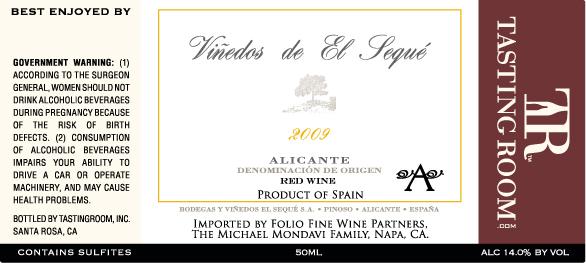2009 Alicante Red Blend
The Tastingroom Vinedos De El Seque is a captivating red blend from the esteemed Alicante region, showcasing the harmonious interplay of its varietals. This intriguing wine presents a deep red hue that invites exploration. On the palate, it reveals a full-bodied structure with medium acidity, supported by plush tannins that lend a firm yet approachable quality. The fruit intensity is prominent, delivering rich notes of ripe blackberries and cherries, complemented by whispers of spice and earthy undertones that enhance its complexity. This well-crafted wine offers a dry finish, making it an elegant choice for a variety of dining experiences or simply savoring on its own. The 2009 vintage highlights the sophistication that Alicante wines are known for, creating a delightful drinking experience that is both inviting and memorable.
The Tastingroom Vinedos De El Seque is a captivating red blend from the esteemed Alicante region, showcasing the harmonious interplay of its varietals. This intriguing wine presents a deep red hue that invites exploration. On the palate, it reveals a full-bodied structure with medium acidity, supported by plush tannins that lend a firm yet approachable quality. The fruit intensity is prominent, delivering rich notes of ripe blackberries and cherries, complemented by whispers of spice and earthy undertones that enhance its complexity. This well-crafted wine offers a dry finish, making it an elegant choice for a variety of dining experiences or simply savoring on its own. The 2009 vintage highlights the sophistication that Alicante wines are known for, creating a delightful drinking experience that is both inviting and memorable.




